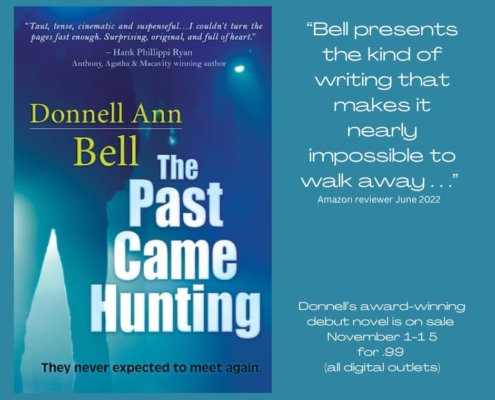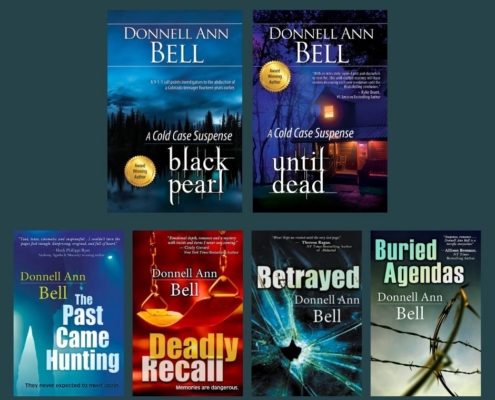Growing as a Writer: My Trek Down Memory Lane
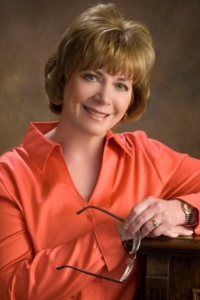
Author Donnell Ann Bell
By: Donnell Ann Bell
Years ago, when I left my newspaper job and turned to fiction, I was forced to become educated in a short amount of time. I also can assure you during that period, the self-assured nonfiction writer was humbled (Please note: I’m already pretty humble!).
WHAT I LEARNED:
There is a huge difference between fiction and nonfiction.
In journalism we’re taught not to editorialize, even when we are outraged, the topic turns personal, or we are particularly moved. While in fiction, we’re encouraged to do the opposite. Develop interesting characters, express their points of view, and show emotion on the page. Whether you’re writing science fiction, historical, fantasy, mystery, romance, the list goes on, in fiction, if your reader can’t relate to your character (or to put it bluntly—couldn’t care less), you’ve lost your reader.
To stress my point, as a new fiction writer, I once entered a contest in which New York Times Bestselling Author Suzanne Brockmann was my judge. She scribbled on my entry the following words, and trust me, she got her point across. “You write well BUT HOW DO THEY FEEL?”
There’s this thing called genre
Quite soon after I switched to fiction, I was told I should join a local writing group. To become a member, however, I would need to join the 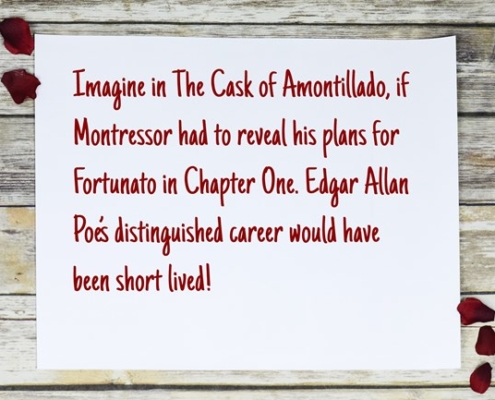 parent organization Romance Writers of America®. Both organizations during my tenure were stellar, and I credit both with my early fiction education. During my time with Pikes Peak Romance Writers, I attended something known as Open Critique (an avenue provided to writers not in a person’s regular critique group to provide fresh insight.) Here, I discovered another anomaly about fiction.
parent organization Romance Writers of America®. Both organizations during my tenure were stellar, and I credit both with my early fiction education. During my time with Pikes Peak Romance Writers, I attended something known as Open Critique (an avenue provided to writers not in a person’s regular critique group to provide fresh insight.) Here, I discovered another anomaly about fiction.
Fiction is broken into genres. To complicate matters, subgenres are often attached to the genre, oftentimes subs attached to the subgenres! On one Sunday afternoon, I submitted my perfectly written chapters, waited for the accolades, only to be met by the confused faces of my peers. “Why is this person skulking about? Who is he, and why should we care?” the OC leader demanded.
“I’m writing a mystery,” I stammered. “I can’t tell you that yet.”
That’s when I learned I was surrounded by romance writers who didn’t read my favorite genre. Further, they obviously couldn’t relate to what I was writing. One by one, in a chorus of agreement, members of the critique group asked me to explain upfront what my character was up to. Hardly conducive to my mystery plot. Imagine in The Cask of Amontillado, if Montressor had to reveal his plans for Fortunato in Chapter One. Edgar Allan Poe’s distinguished career would have been short lived, indeed!
Fortunately, I found a romantic suspense chapter in RWA® and remained in that group for many years.
But then I learned . . . .
Genres and subgenres evolve.
Much like society, authors change their mores and preferences. Romantic Suspense, which I enjoyed writing (and still do), began heating up the pages. Readers obviously adored the added sizzle, and publishers and their marketing departments noticed. Management conveyed those statistics to their editors. Editors spoke to the agents, and naturally my agent listened closely.
She asked me to spice up my unpublished novel, which back then was winning awards. The unpublished title was Walk Away Joe, and as an aspiring author who wanted to sell, I did my best. Unfortunately, I found I didn’t enjoy writing hot and steamy; I preferred suspense. Don’t get me wrong, if my book called for a sex scene, I was all in. I just didn’t enjoy writing copious amounts of it. Further I don’t do gratuitous anything—whether it be violence or sex.
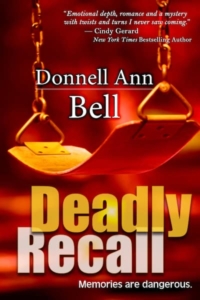 Around this time, my agent and I parted ways. By then, my second unpublished novel, DEADLY RECALL Deadly Recall | Romantic Suspense Thriller | Author Donnell Ann Bell, finaled in a major contest, and I queried BelleBooks, who is my publisher to this day. Pat Van Wie bought the book and would become my first editor. Still, in my editorial letter she told me to get rid of so much sex. We’re buying you because of your suspense. Not very flattering about the added sex scenes I’d worked hard to include. But truth be told, I was vastly relieved.
Around this time, my agent and I parted ways. By then, my second unpublished novel, DEADLY RECALL Deadly Recall | Romantic Suspense Thriller | Author Donnell Ann Bell, finaled in a major contest, and I queried BelleBooks, who is my publisher to this day. Pat Van Wie bought the book and would become my first editor. Still, in my editorial letter she told me to get rid of so much sex. We’re buying you because of your suspense. Not very flattering about the added sex scenes I’d worked hard to include. But truth be told, I was vastly relieved.
Walk Away Joe became THE PAST CAME HUNTING. It still includes a couple of sex scenes, and the chapters are loaded with romance and sexual tension. In my opinion, though, I left the critical scenes that belong in the book.
Years have passed since my debut book was published, but it remains one of my most popular books. And . . . as it turns out my publisher has put it on sale for .99, but the sale ends tomorrow, November 15! So, if you’re interested, grab yours quick!
These days I belong to Sisters in Crime, Mystery Writers of America, and International Thriller Writers. My editor is Debra Dixon, one very smart woman and the touted expert on Goal, Motivation, and Conflict. I write task force suspense and single title romantic suspense and my learning trek continues every day. https://www.donnellannbell.com
As I close out this blog, I’m curious about my fellow Stiletto Gang authors and others who may be weighing in. Was your journey anywhere close to mine? What early lesson(s) did you take away that led to what you write today? In other words, how have you grown as a writer?
Till next time!

